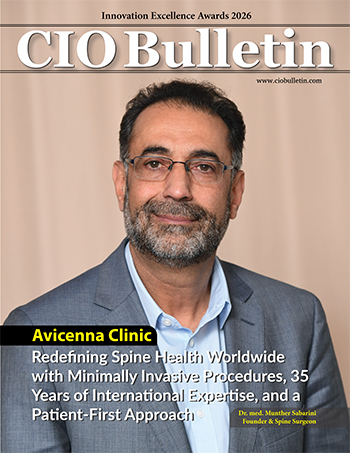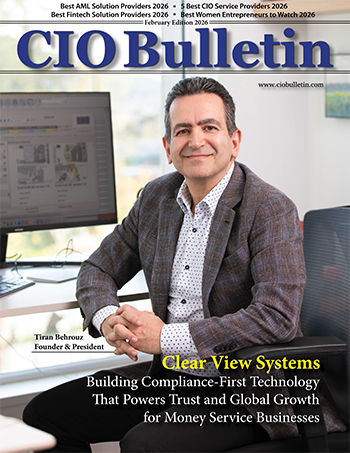50 Best Companies to Watch 2021
CIO Bulletin

Rapidia has the potential of metal 3D printing with the quickest, simplest and affordable way to 3D print complicated and strong metal parts for prototyping and end-use applications. Recognizing that existing “office friendly” metal 3D printers still require chemical intensive and lengthy debinding processes, the Rapidia team set out to develop a system that quickly creates even the toughest or most intricate parts, that is environmentally friendly and simple to use, and can be installed in a normal office.
The result is a 3D printing system using water-based metal paste, revolutionizing the speed, simplicity and affordability of metal 3D printing.
Rapidia’s unique water-based technology revolutionizes how metal is 3D printed
Water-based from start to finish, the Rapidia metal 3D printing system is the simplest and safest way to create strong metal 3D printed parts. Water-based metal paste is solvent-free, safe to handle and unlocks a new world of opportunities for creating complex parts.
Clean and safe
Rapidia’s water-based metal paste technology is the foundation of the Rapidia metal 3D printing system. It takes the advantages of bound metal 3D printing a step further by accelerating the production process and doing away with solvents. The result is a fast, simple to use system that is environmentally friendly and completely solvent-free.
No debinding required
The Rapidia metal 3D printing system takes parts straight from printer to sinter, with no need to debind. Parts printed with conventional three-stage processes need to be prepared for sintering by dissolving the polymer binder, a process called debinding. This step can take upwards of several days, and requires treating the printed part with a chemical solvent - a messy and hazardous process in an office. The Rapidia process eliminates debinding by using water to bind the metal powder, making the material safe to handle. The water evaporates during printing, saving time and removing the need for a debinding machine or solvents.
Evaporative supports for complex internal structures
The Rapidia metal printing system is exceptionally suited to produce parts with complex internal structures, using proprietary evaporative polymer supports. These supports are unique to Rapidia, and are made possible by the water-based metal paste, as the polymer supports can be retained into the sintering stage.
Water bonding and sinter welding
Rapidia’s water-based metal paste is water soluble, enabling the unique ability to fuse unsintered parts together using only water. Complex assemblies can be created by printing simple parts and attaching them by dipping the area to be joined in water. After sintering, the resulting assembly is as strong as a single part. A similar process can also be used to sinter weld finished printed parts to machined parts of the same alloy, using the Rapidia metal paste.
Available materials
Print metal parts in only two steps:
Printer: The Rapidia metal printer is as simple to use as a plastic filament printer. Two independent print heads are fed with Rapidia’s unique water-based metal, ceramic or support material paste. Water-based metal paste is the simplest and safest way of 3D printing metal. There are no metal powder hazards and no plastic solvents, which means no fumes and no need to dispose of waste polymer. Once printed, parts are ready to go straight to the sintering furnace, with no need for a lengthy debinding process. There are no limits on infill, and fully solid parts can be printed.
Sinter: The Rapidia sintering furnace is fully automated, safe and easy to install. Powered by a 60A single-phase receptacle and sized to fit through an office door, it is designed from the ground up to be truly office-friendly. The furnace software comes pre-loaded with sintering profiles for Rapidia’s wide range of materials; just select a material and press start. A retort made of thick refractory metal ensures thermal uniformity over the full temperature range, with a peak temperature of 1400 °C. Rapid cooling shortens the sintering cycle, allowing for a completed run per day.
The capability to create the most complex parts
Evaporative Supports: The Rapidia system enables users to print parts with complex internal structures, enabled by proprietary evaporative polymer supports. Reduce wasted metal by up to 90%.
Hand Removable Supports: Metal supports, at times necessary to prevent sagging during sintering, are easily removable by hand, and reducing post-processing time.
Water-Bonding: Join unsintered parts together to make complex assemblies, simply by wetting both parts and pressing them together.
Dan Gelbart, Founder
Dan is a founder of several successful Canadian companies. He co-founded Creo Inc. in 1984 and served as President and then CTO until July 2005, when Creo was sold to Kodak for $1 Billion. He also co-founded Kardium, a medical device company that has developed a revolutionary atrial fibrillation treatment and will soon be shipping products. Dan developed the technology which FedEx used to become the first shipping company to offer instantaneous tracking. Dan’s innovations have been documented in 125 US patents. While teaching at the University of BC, he created a highly regarded YouTube series about building prototypes, which is currently used by several universities.

Insurance and capital markets







